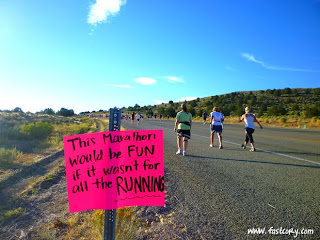My PT was speaking to me about a "functional exercise program"... which I then came home and googled. (I LOVE google!! LOL!)
Basically- when I decide on exactly what I want to do, my program is tailored to get me there. "When an exercise is truly functional, it is sports-specific and must fulfil very specific criteria. The exercise will then have an immediate and often dramatic effect on skill performance." Problem is I really have no idea on what I want to do! Do I want to run a half marathon? Yeah, probably. Do I want to bench press 20kg dumbbells? Yeah, probably. Can I do both? I'm not sure!! Some would say no but I seem to be doing ok working my way up on both at the moment!! LOL!
 |
| Probably exactly how my face looks!! |
 |
| Oh yeah... definately me. LOL! |
"There is a difference between general training and specialized (functional) training. Biomotor abilities are strength, power, endurance, flexibility, coordination, balance, agility and speed. An exercise is most functional when the biomotor profile most closely approximates the ability lacking in the athlete’s body (that's MINE! LOL!) or when it most closely resembles the task being trained for. Functional training is geared to produce greater and more useful gains in less time". Sounds good to me!! Hehehe...
I think I am happy with the general training at the moment - perhaps if I start to stall in my numbers improving or if I develop a huge passion for a particular sport then I can look at functional training... Hmmm... Not sure... Something to keep in mind. I suck at making decisions!! LOL!
Components of a functional exercise program. (See web pages below).
To be effective a functional exercise program should include a number of different elements:
Specific to the sport - Any program must be sport specific, working to develop and maintain sport specific strength.
Integrated – It should include a variety of exercises that work on flexibility, core, balance, strength and power.
Increases Core Stability – Core stability is crucial for any sport or activity. A stable core allows for more efficient transference of power from the lower to upper body, and an increased ability to maintain correct athletic posture over long periods of time.
Progressive – Progressive training steadily increases the strength demand from workout to workout. While most people are aware of the need for this in relation to traditional strength training, it is sometimes overlooked in functional training. For functional training is also means varying speed of movement to make it more sport specific.
Periodized – Functional training for competitive athletes needs to fit into their competitive cycle of competition. In broad terms this means that they will vary their program throughout the year to achieve optimal results, peaking for competitions or races and building in recovery time also.
Individualized – An athlete’s program needs to be designed for them. The only way to do this is to work with a coach or trainer who specializes in the particular sport and can custom design a program. A qualified personal trainer can easily include functional training in their clients' exercise programs, whether they are recovering from an injury or preparing for competition.


No comments:
Post a Comment